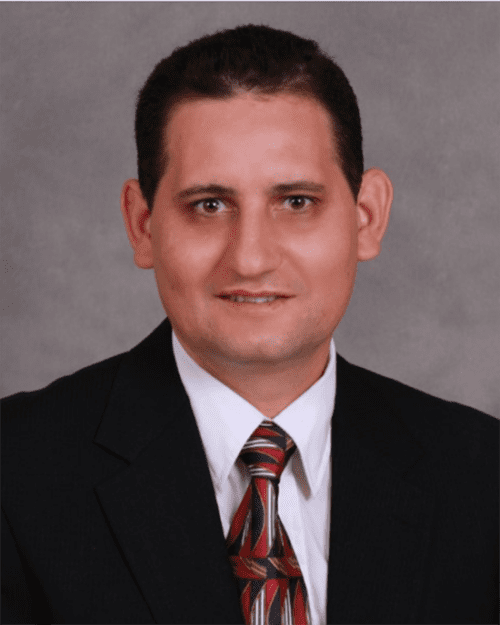Lionhearted Leaders: Maged Mikhail

PNW’s Lionhearted Leaders are faculty recognized for their exceptional work inside and outside the classroom.
Meet Maged Mikhail, associate professor of mechatronics engineering technology and a Lionhearted Leader in the College of Technology.
What are your teaching methods, philosophy and goals?
I have based my curriculum and assessment on constructive ways that include results from my current research and real problems from my services in business and industry. Hence, in the classroom, students can see the synergy between teaching, research, and services. I approach teaching from a very personal and practical standpoint. Having spent a great deal of time in industry sectors and local companies, I understand what is expected of graduates of the Mechatronics Engineering Technology program. I constantly use this knowledge to drive my classroom activities in a direction that will have a meaningful outcome for my students.
Teaching and mentorship are important ways that I contribute to my students. I approach my teaching activities with three primary goals: 1) to educate and up-skill students at the cutting edge of technology, problem-solving, and practice; 2) to recognize and engage diverse student learning styles; and 3) to continuously improve my instruction to meet student needs. I accomplished these goals by designing classes and lesson plans that draw on diverse and high-quality materials and that incorporate a variety of instructional tools and methods.
I fully utilize best teaching practices, e.g., making learning outcomes as specific and clear as possible in the syllabus, and relating these to the assignment and grading metrics. By paying attention to first classes, taking an effort to learn with students, maintaining high passion and enthusiasm, and making the class as interactive as possible, I transform the students from passive observers to active players.
Will the integration of robots within agricultural systems have a negative effect on migrant workers?
Agriculture is one of the oldest and most important economic industries. However, a rapidly growing population and a pandemic lockdown are forcing the sector to evolve to cope with the demand placed on food resources. For farm workers, picking small fruit or vegetable sizes such as strawberries or tomatoes is painful work. Laborers, who are often migrant workers from Mexico or another country, might spend 10 to 12 hours a day in the sun, bending and re-bending over the tiny plants, trying to fill baskets with the fragile fruits or vegetables as quickly as possible for little pay. The integration of robots within agricultural systems is a possible solution to these problems.
One of the PNW and CMEC initiatives is to find a proper solution to this problem by conducting research funded by an Economic Development Administration called Project TRAVERSE. The goal of the Scaling Pandemic Resilience Through Innovation and Technology (SPRINT) Challenge grant and proposed research was to provide remote work to people unable to get jobs, resulting from either a pandemic or other reasons. The SPRINT grant was also designed to offer American industry resilience in the face of another COVID lockdown.
In a situation like that affecting the U.S. Produce Industry, then all workers would be impacted, most notably migrant workers. However, with the technology being developed through Project TRAVERSE, any worker with a Wi-Fi connection and gaming controller could in theory still earn income from the comfort of their homes and home country.
What do you like to do outside of work?
I love working in my backyard and growing many types of vegetables during the summer. Walking and biking are other opportunities when the weather is nice.
During the weekend and holidays, I like being with my family playing, watching, cooking, going together to church and sometimes traveling overseas to visit and see the rest of my family.